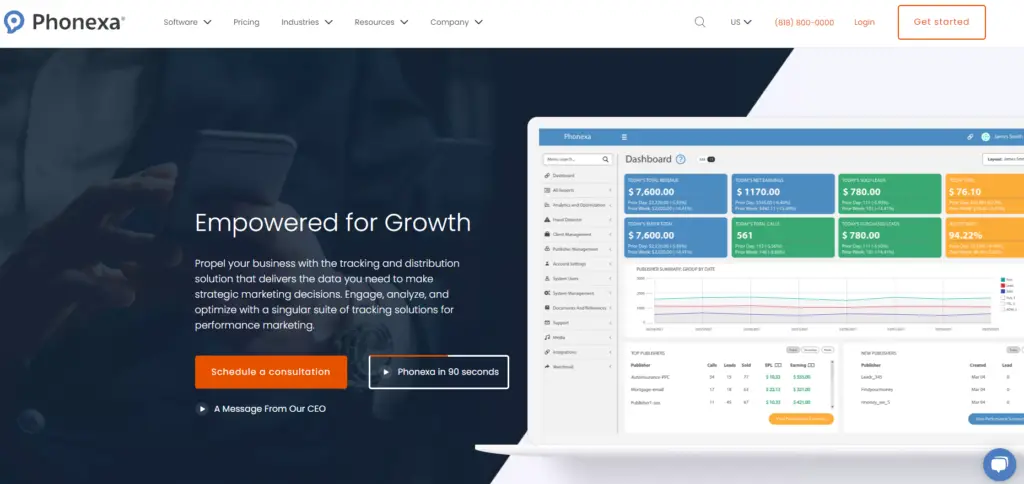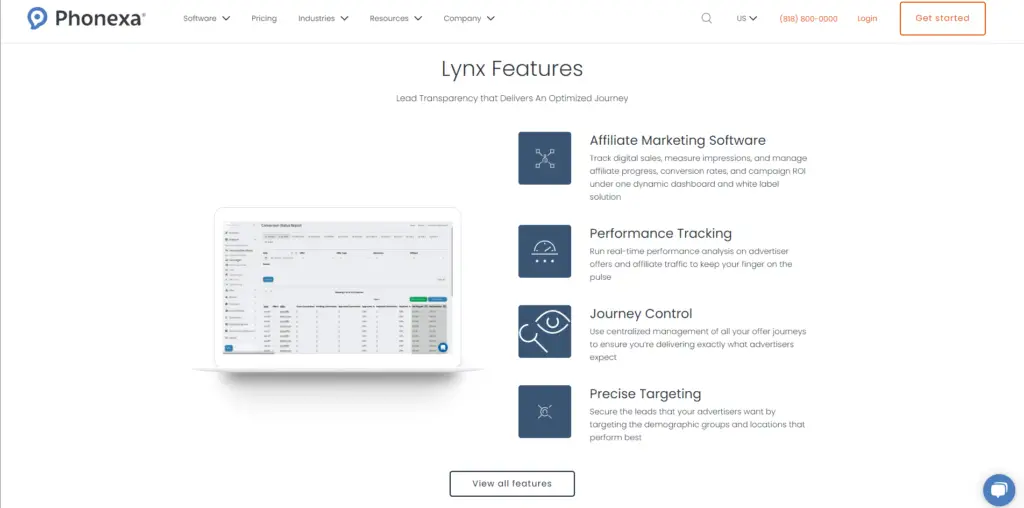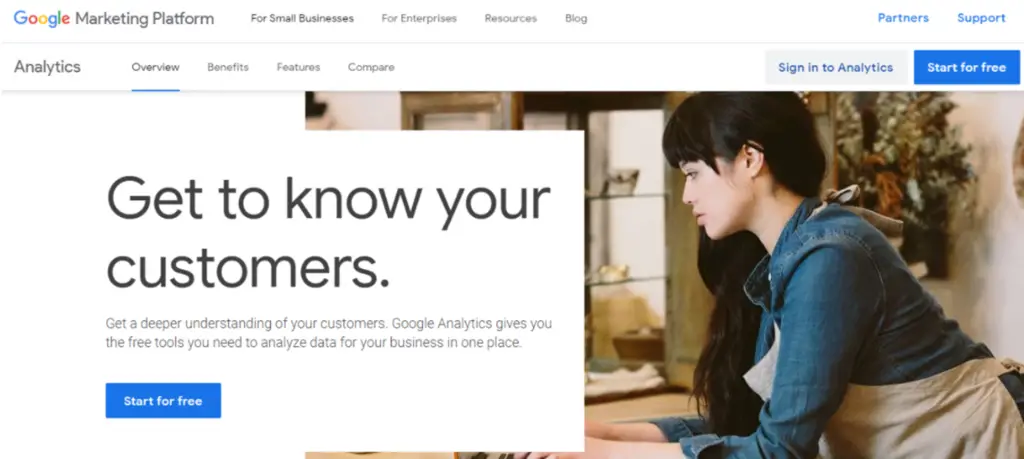Whether you’re selling products in retail stores or online you’ve probably heard, at least in passing, the term “affiliate marketing”. Now there are, and have been through the years, many types of marketing, and affiliate marketing isn’t something never seen before, but it’s done in a new way that wasn’t available before, mainly because of the social media explosion over the last decade. Read this article and find out more about affiliate link tracking.
To put it simply, affiliate marketing is a process where you hire someone (an affiliate) to market your products for a commission of the profits.
Nothing new right. Well, the trick is that the affiliate earns the commission only if the final conversion happened from links on their site and/or social media platform. Before you could use spokespeople, but you couldn’t directly tie their contributions to the sales – now you can.
This method of marketing has seen a sharp increase, especially in the last few years with the rise of influencers who get massive amounts of money to promote a product, and the more followers they have, the more potential conversion there’ll be. While you still must pay the person (or site) doing the promotion there are no costs to marketing teams that need to come up with the campaign, no physical, TV, or web ads, no seasonal promotions, etc.
Essentially all you have to do is get a popular Twitch streamer (for example) with a couple of million followers to use your brand-new headphones on their stream, mention them and emphasize the “link down below” – just watch those conversions soar. The whole process is extremely simple for both you and the affiliate.
These conversions are tracked through affiliate links which are essential for giving you feedback regarding the overall success of an affiliate (how many people saw them, how many people clicked, how many of those clicks led to conversions, etc.).
Because they’re so important, it’s no surprise many software solutions have popped up, enabling you to track these links, and providing you with detailed information about them. The software we’ve found does the job incredibly well is Phonexa, which we’ll look into in just a few moments.
How to track affiliate links

While there are a few ways to track affiliate links, the two most commonly used ways of tracking them are client-based tracking and server-to-server tracking, each of which approaches the matter in a specific way.
Client based tracking uses cookies
When someone clicks on the link your affiliate directed them to a cookie stored in their browser. If they follow that up with a conversion on your site, the software you’re using to track conversions reads the transaction ID from the cookie, registers the transaction, and awards the affiliate that brought that customer to your pages.
Server-to-server tracking
Server-to-server tracking, on the other hand, doesn’t store cookies on the user’s browser. Instead, the transaction ID is stored with your affiliate. From the user’s standpoint, there’s no difference, they’ll click on a link that will get them to one of your pages, where they’ll potentially finalize their purchase.
If conversion occurs, the affiliates system sends the info with the transaction ID to your tracking software which registers it and awards the affiliate. To use this type of tracking your affiliate needs to be using a platform that supports these types of notifications. While they both get to the same place, each method has some pros and cons.
Client based tracking
Client based tracking can be used by any affiliate, which makes the method universal, however, in the last couple of years, people have started hating cookies because they fear for their personal data (even though cookies that work as intended don’t jeopardize security in any way), making them prone to deletion or being blocked by various antispyware and antimalware apps.
Server-to-server tracking doesn’t need cookies, but you’ll have to find an affiliate that can have the underlying technology which is able to send you the transaction IDs once your tracker requests them, thereby limiting your potential affiliate pool. All that being said, client-based tracking is, at least for now, more popular, and presents itself as the better choice.
Finally, keep in mind that these links users are clicking on can be virtually anything – banners on sites, links in video descriptions, links in articles, mentions on social media posts, etc. Therefore, you should always cast a wide net when looking for affiliates in the future.
The best software for affiliate marketers

We’ve already mentioned Phonexa as a great solution for affiliate marketing, so now let’s dig a bit deeper. Right off the bat, it’s worth mentioning that Phonexa is a complete tool that lets you track all your advertising avenues and gives you feedback regarding how successful each campaign is.
You can then easily see the results of a TV ad campaign compared to a web campaign and make an informed decision regarding your future marketing endeavors. That being said, we’ll be focusing on affiliate marketing and how Phonexa is able to help you in that regard.
Phonexa employs an easy-to-use dashboard that’s designed in a way anyone can use it, but at the same time offers up massive amounts of useful analytical data. The crux of it all is found within the click tracking tool – Lynx. This is where all that data is coming from, and Lynx can track from a whole variety of channels that include Google Ads, Facebook, Instagram, Twitter, etc.
Lynx – Phonexa’s tracking tool

We’ve already gone through the two main methods of tracking works, and Lynx represents the aforementioned “software” you’ll use on your end. Setting it all up is done in just a few clicks, after which you need to invite affiliates to your network using the links that are embedded to their pages (and leading back to your pages).
Finally, those links are then used to track and measure the sources that lead to conversions, enabling you to pinpoint the weakest and strongest links and alter your affiliate’s status accordingly. All the data you’ve gathered can then be used to get analytical data showing the real-time performance of your links, the conversion rates, and many other relevant metrics.
Naturally, you can go through all this raw data and hope to come out of it with anything relevant, so you’ll need to check out one of the many reports that can be generated at any time and are stored in the archive for future use. Taking all this into account you can then set up an automatic payout timeline for your affiliates that will handle the commissions based on their performance to finalize the cycle.
Google Analytics and Google Tag Manager

You could potentially track your conversions, and therefore, your affiliate links through the combination of Google Analytics and Google Tag Manager. Everything with “Google” in its name deserves to be mentioned, but for this particular issue going with the combination above might not be the optimal solution, especially compared to a solution like Phonexa.
The main reason why it isn’t the optimal solution is the fact that Google Analytics is a software that focuses primarily on your site. Because of this, the process to get an affiliate link data is overly complicated and won’t net you the same results as well something that’s designed specifically for that role.
Without going into too much technical detail, you’ll need to tag incoming data sources with the Tag Manager; this data can then be used with Google Analytics – a lot of legwork and it’s not even complete because Google Analytics isn’t an affiliate tracking software, it simply wasn’t designed for it.
On the other hand, Phonexa, as stated above is designed specifically for that purpose. With Lynx, you’ll quickly set up your network of affiliates with all the tracking and analytical tools that will help you get maximum return on investment. On top of that, there are a number of processes that can be made fully or partially automated, another thing you won’t get to do with Google Analytics.
Conclusion
Managing links is important in today’s eCommerce-driven world because they represent the easiest way to promote your site/blog/service/products. In any business, you’re always looking to minimize your input regardless of what it is (budget, time spent, etc.) and maximize your profit. What software like Phonexa provides is the means to see how your spent resources reflect your income. In layman’s terms, you’ll know how much you get back for every dollar you spend.
To track affiliate links effectively, use tools like UTM parameters or affiliate tracking software provided by your affiliate program. These tools help monitor clicks, conversions, and performance metrics to optimize your strategy.
Depending on how well your affiliates are performing based on the performance numbers you’re getting you can raise and lower their commissions or cut them out completely in case they’re severely underperforming.
Without this data, you run the risk of potentially spending your funds on avenues that simply aren’t getting you anything in return and that could ultimately lead to serious issues for any business. Especially now where competition in every market is probably fiercer than it’s ever been because of the accessibility of it all. Give yourself a competitive edge with Phonexa and you won’t be looking back.

